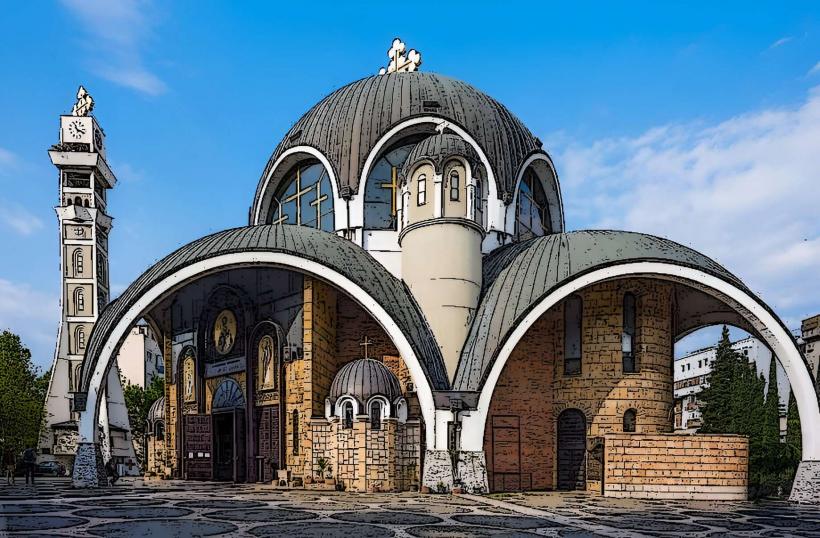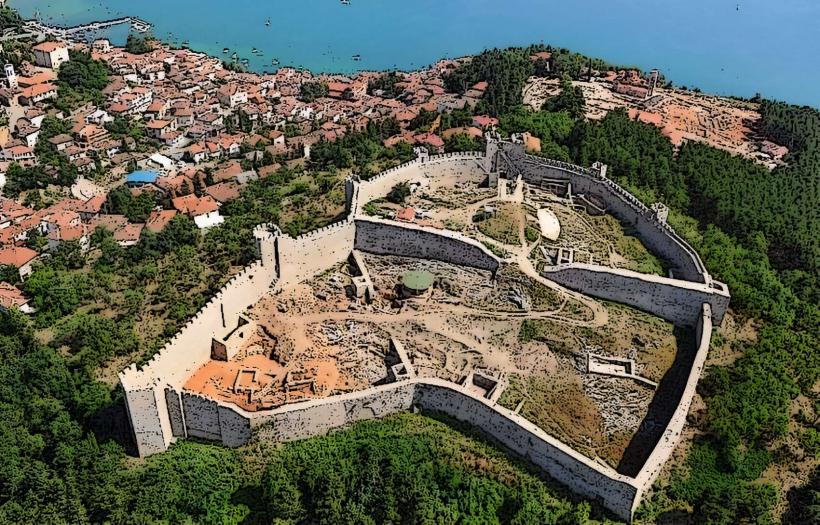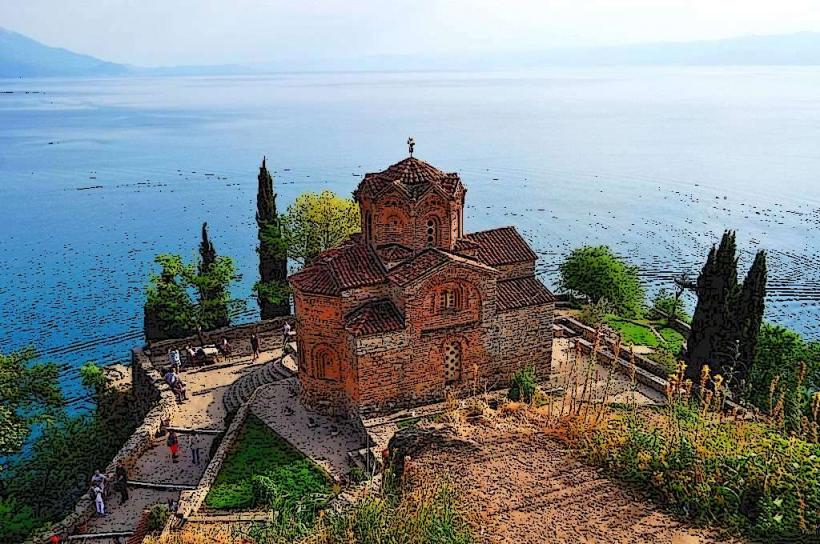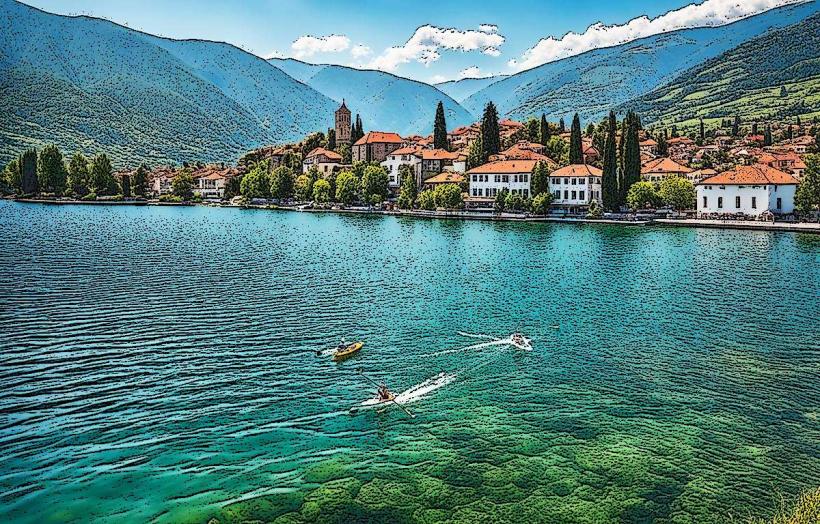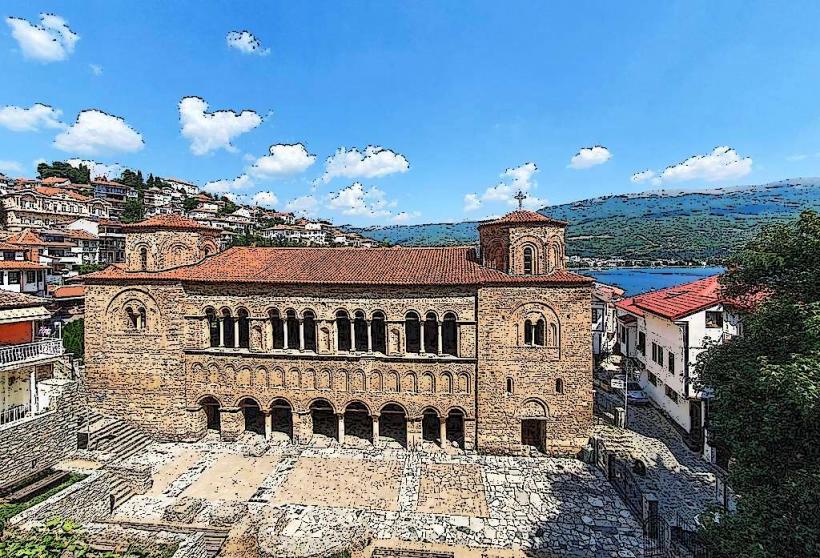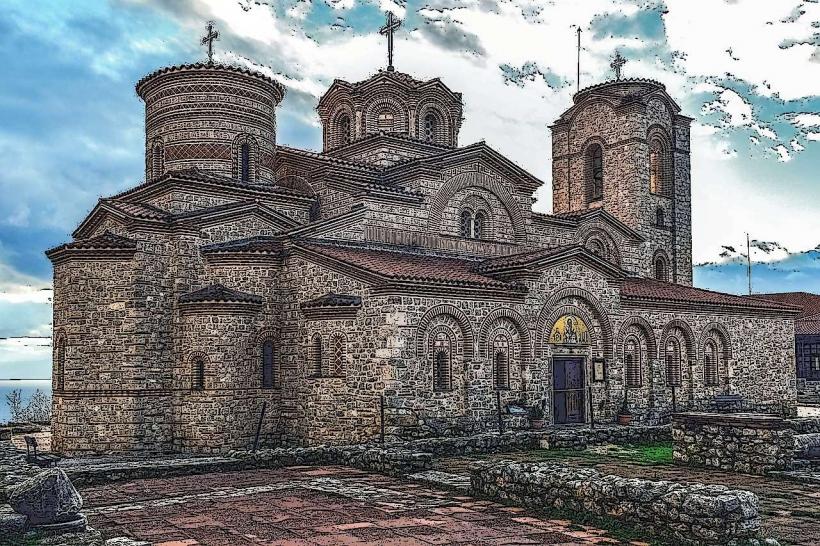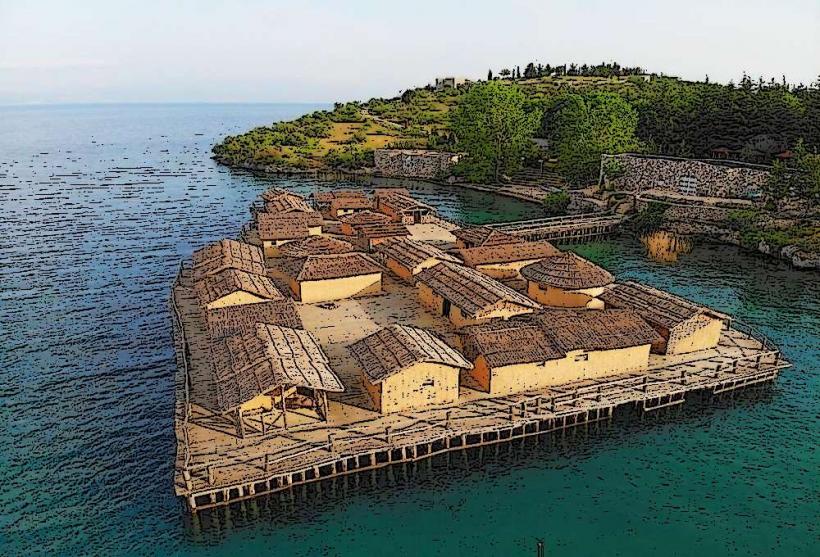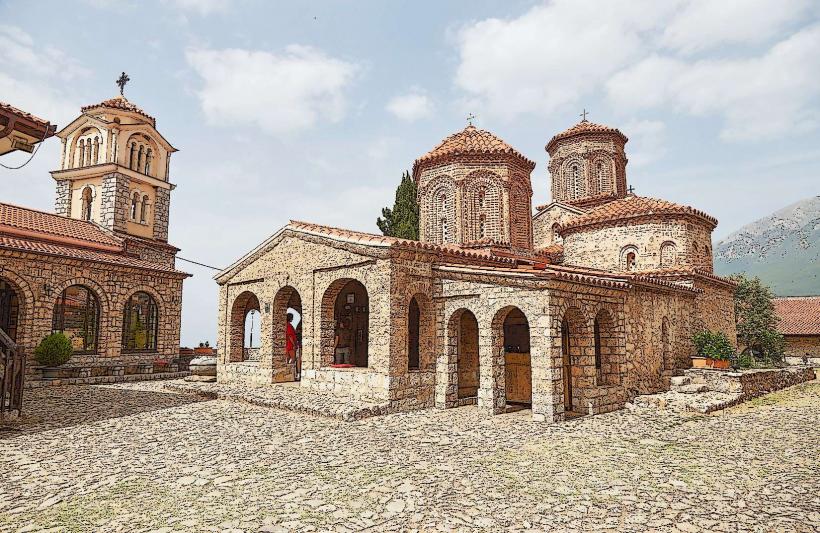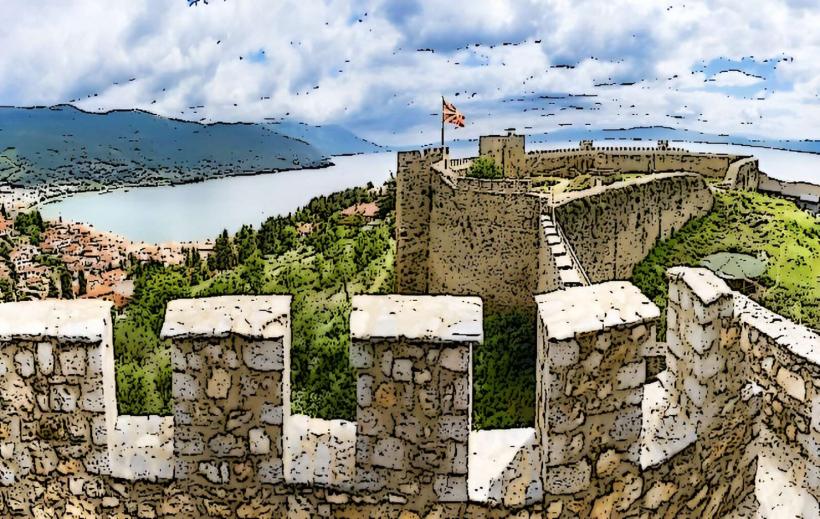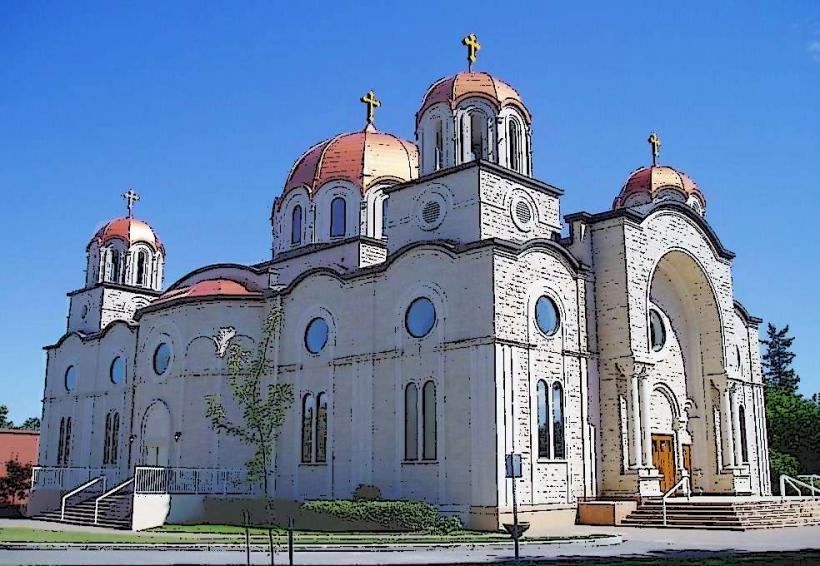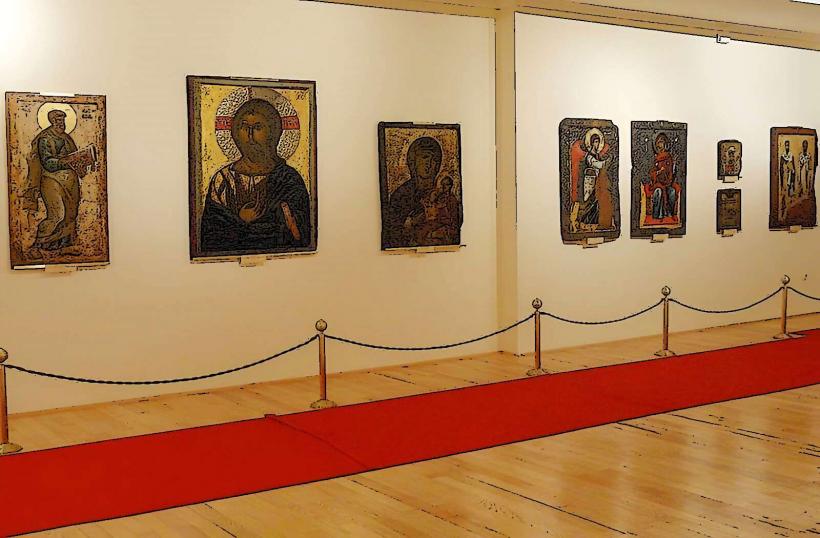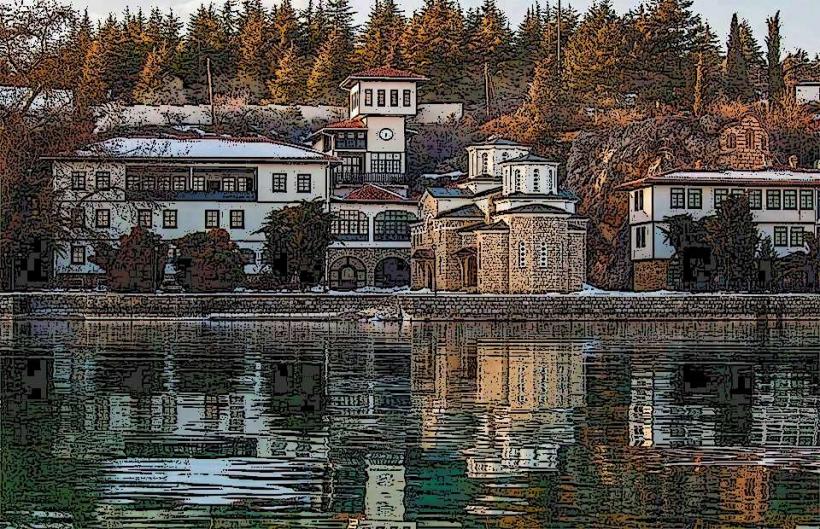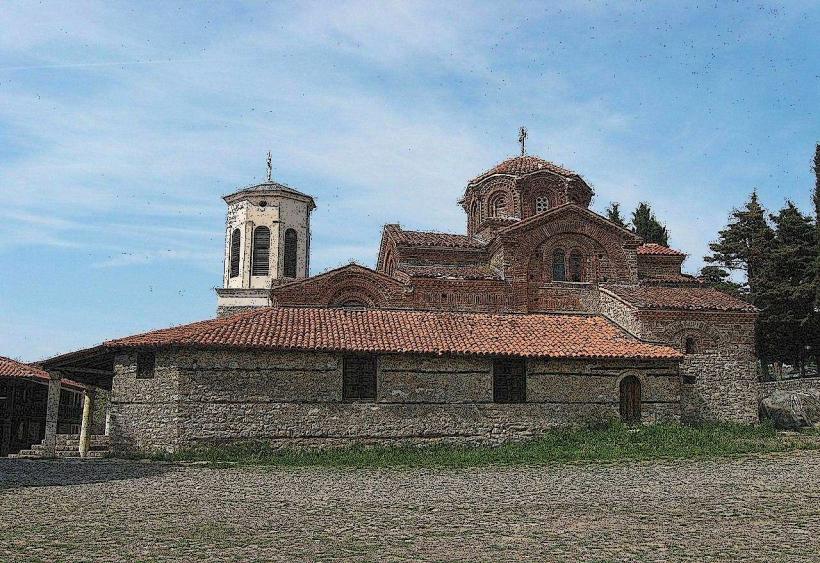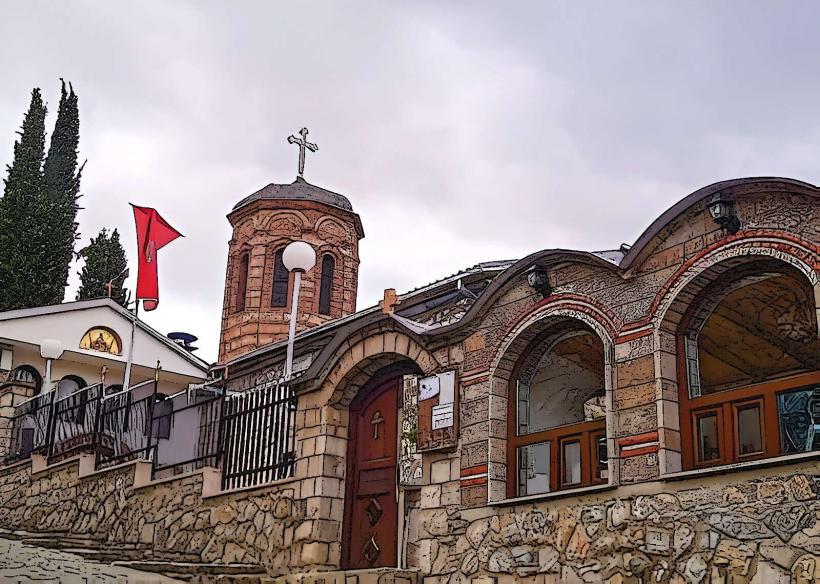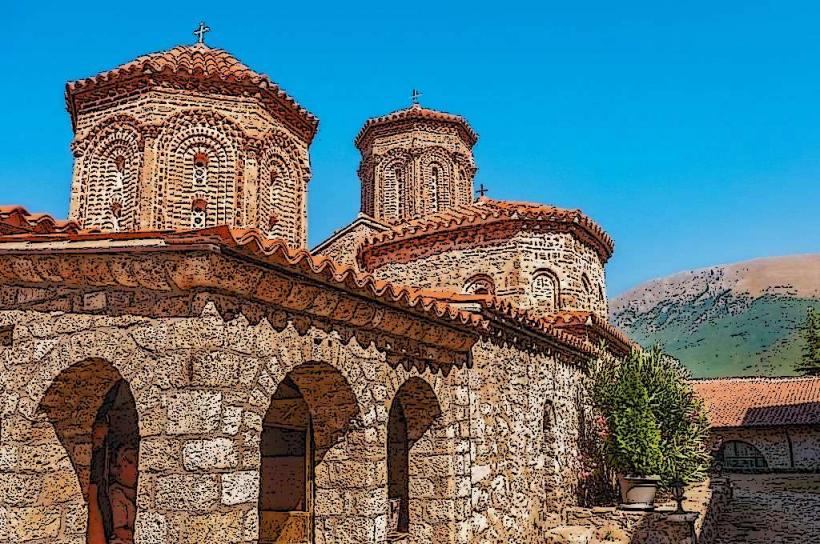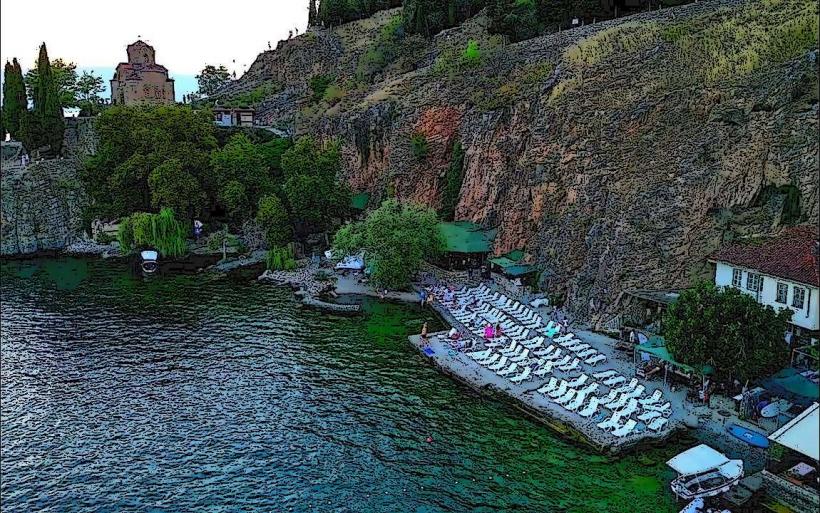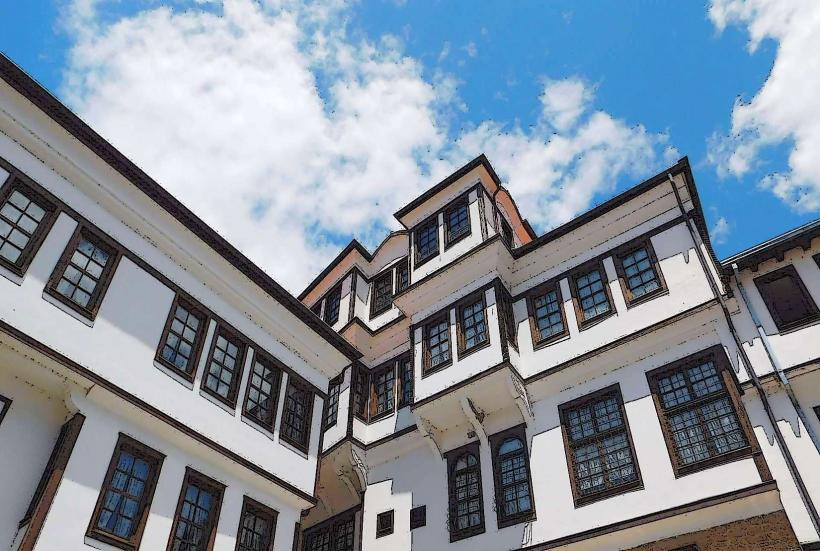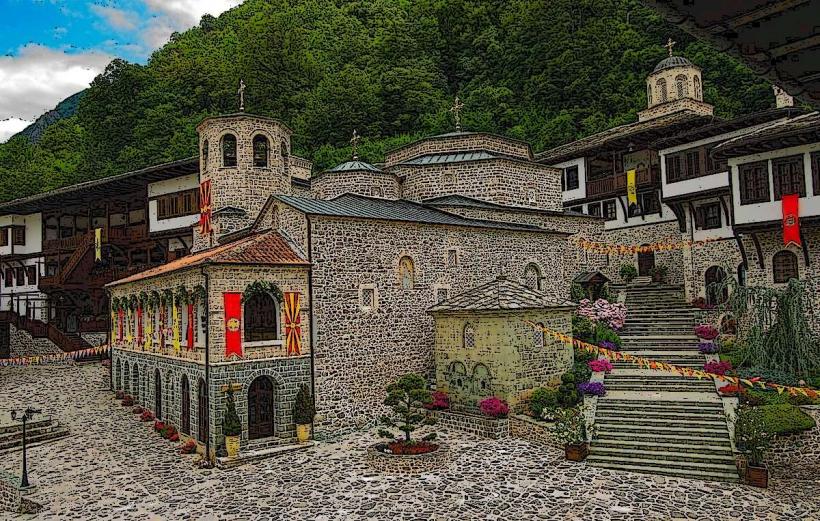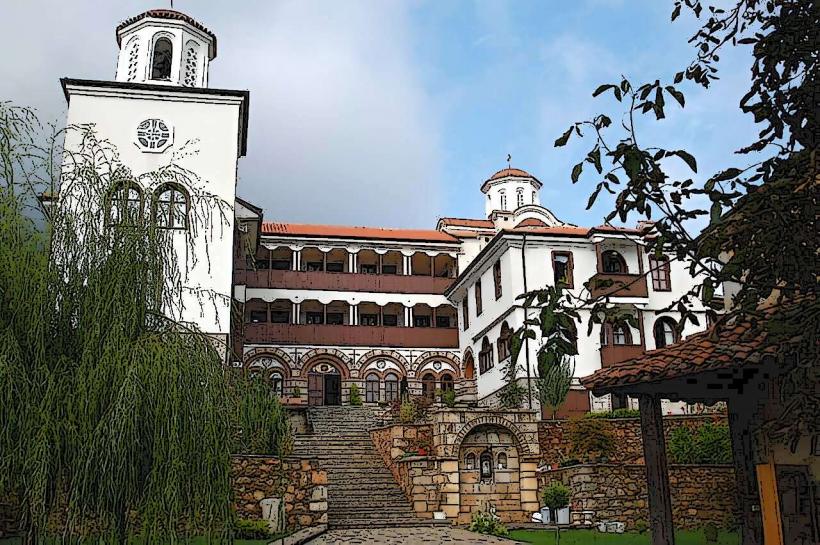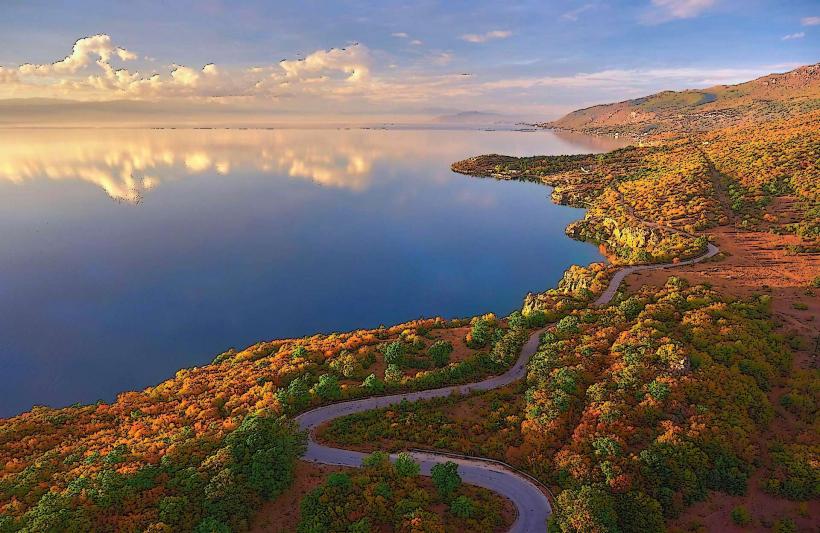Information
Landmark: Church of Saints Clement and PanteleimonCity: Ohrid
Country: North Macedonia
Continent: Europe
Church of Saints Clement and Panteleimon, Ohrid, North Macedonia, Europe
The Church of Saints Clement and Panteleimon is a medieval Orthodox church located on Plaošnik, a historic site in Ohrid, North Macedonia. It functions as an active religious site and an archaeological complex.
Visual Characteristics
The church exhibits a Byzantine architectural style, characterized by a cross-in-square plan. Construction materials consist of alternating courses of stone and red brick. The central dome rises above the main structure. The building features a three-nave basilica, a narthex, and a later exonarthex. Interior walls contain preserved frescoes.
Location & Access Logistics
The church is situated on Plaošnik, approximately 1 kilometer southwest of Ohrid's Old Town. Access is primarily by foot via cobbled paths from the Old Town. Limited parking is available near the entrance to the Plaošnik complex, mainly for tour buses. Public parking lots are located in Ohrid center, requiring a walk to the site. No direct public bus lines serve Plaošnik; taxis can drop off at the base of the hill.
Historical & Ecological Origin
The original monastery was established in the 9th century by Saint Clement of Ohrid. The current church structure has undergone multiple rebuilds and expansions, notably in the 13th and 14th centuries, with extensive restoration work conducted in the 20th and 21st centuries. Its original purpose was a monastic complex, a center for the Ohrid Literary School where the Glagolitic and Cyrillic alphabets were taught, and the burial place of Saint Clement.
Key Highlights & Activities
Visitors can observe the archaeological excavations of the early Christian basilica. The tomb of Saint Clement of Ohrid is accessible within the church. Preserved frescoes are visible on the interior walls. Orthodox religious services are held periodically. The surrounding Plaošnik complex, including a baptistery and mosaic floors, is available for exploration.
Infrastructure & Amenities
Public restrooms are located near the entrance to the Plaošnik complex. Natural shade is limited on the exterior grounds; the church interior provides shade. 4G/5G cell phone signal is generally available. Small kiosks selling refreshments may operate during peak season. Restaurants are located in Ohrid Old Town, a 10-15 minute walk away.
Best Time to Visit
For photography, early morning or late afternoon provides softer light on the church exterior. The months of May to September offer warm, dry weather conditions. This landmark is not affected by high or low tide requirements.
Facts & Legends
The site is historically recognized as the location where Saint Clement of Ohrid developed and taught the Glagolitic alphabet, which served as a precursor to the Cyrillic script. Archaeological excavations have uncovered over 500 icons, underscoring its historical significance as a major religious and cultural center.
Nearby Landmarks
- Samuil's Fortress: 0.3km North
- Icon Gallery: 0.5km East
- Ancient Theatre of Ohrid: 0.6km Northeast
- Robevi House Museum: 0.7km East
- Church of Saint John at Kaneo: 0.8km West

